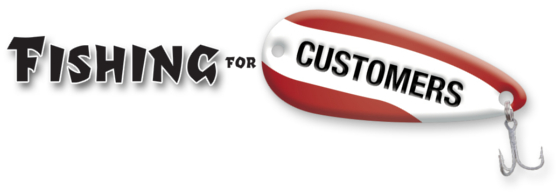When I was 16 and my cousin Kelly was 15, we were both enthusiastic about becoming scuba divers. (Interestingly enough, we both did about six years later). However, my story takes place in 1969 when Kelly found an ad in the back of a magazine for “military surplus wet suits… only twenty-five dollars.” Wow. Twenty five bucks, huh? Kelly sent ’em a Postal Money Order and waited.
Three weeks later some kind of loose fitting plastic “suit” arrived, looking straight out of a contagious germ lab. Not sure what it was, but a wet suit it wasn’t. Kelly tried calling the vendor, but never got anyone to answer the phone. He wrote a total of three letters, first asking for the correct merchandise, and later asking for a refund. He got nowhere, and finally gave up. It became a lesson for him, and frankly for me as well, to be very skeptical when purchasing anything.
I suspect that most people have had a similar experience. People worry about buying from businesses with whom they don’t have a relationship. Think about it from your potential customer’s perspective. Every purchase decision carries a risk that it might be the wrong decision. Will your product or service perform as promised?
Without a guarantee the customer assumes all of the risk. And when that’s the case, it’s likely that she’s going to pass on the opportunity to do business with you, no matter how much she truly wishes to buy.
However, when the business makes an unconditional satisfaction guarantee, the business takes over the worry and the risk. That makes it so much easier for any prospective customer to buy.
Of course, it’s obvious why more businesses won’t offer a guarantee – unconditional or not. They fear that too many people will demand satisfaction. They fear that truly satisfying a customer costs too much.
Ouch. Fearing your own customers. What a terrible perspective from which to try to attract new business.
Let’s look at the big mail order companies for a minute. Pick up any catalog from Sharper Image, Land’s End, Victoria’s Secret, LL Bean, or Damark. Check out the web sites of Gateway Computers, the Casual Male, or Sears. They all know that buying something long-distance, from someone the customer has never met, can be scarey. These companies wouldn’t be as profitable as they are without those guarantees. Humm. If they are profitable BECAUSE of that guarantee, what do they know that you don’t?
Perhaps it’s as simple as believing in their products and their customer service.
If a customer contacted you right now and said “I’m dissatisfied,” would you tell her that all sales are final? Or would you try to exchange, repair, replace, or even refund? How often does that happen? If you worry that advertising your willingness to make sure your customer is happy might open floodgates of dissatisfied customers, you probably shouldn’t be advertising at all. You should be fixing your company. (C’mon… are there really unhappy customers who haven’t thought of complaining? Trust me, you don’t have to worry about giving them the idea).
Most companies accept that it’s in their best interest to satisfy each customer. Make this a focal point of your advertising. To the extent that you have the courage to aggressively tell the world, you’ll enjoy a competitive advantage over your competitors who continue to fear their own customers.
Let me tell you a related story from Wizard of Ads® partner Michael Keessee. One of Michael’s clients, a service business, (hairdresser in this case) offered unlimited access to their services for a monthly flat fee. The first reactions from the individual beauticians was along the lines of “What? Are you crazy? Let a customer be able to come in here for all of the expensive coloring, and cutting, and treatments for only one fee? That’s the stupidest thing I’ve ever heard.”
Michael’s client implemented the new pricing, and immediately signed up thirty new customers. Only one of the new customers has “taken advantage” of the client. She’s come in about four times a month. Ten of the new customers don’t come in at all some months. The other nineteen have showed up pretty much as walk-in customers would have. From a strictly numbers viewpoint, 3% are marginally profitable, 64% are of average profitability, and 33% are exceptionally profitable!
Six months into this experiment Michael’s client is scouting for additional locations.
Would you take on thirty new customers, if you thought that one of them might be marginally profitable?
Offer that unconditional guarantee. You’ll get the new customers.
___________________________________________________
Senior Wizard Roy H. Williams is teaching his Ad Writing 101 class at the Wizard Academy in two weeks.
This class is incredibly valuable to business owners who are getting more involved in the marketing of their businesses. Roy starts with finding the right idea, and ends with writing to keep clients sold. I recommend this class highly.
Contact Corrine@WizardofAds.com to find out how to attend.
